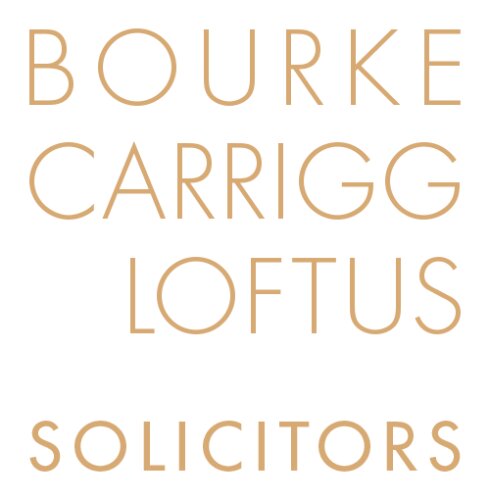Best Juvenile Law Lawyers in Ireland
Share your needs with us, get contacted by law firms.
Free. Takes 2 min.
Or refine your search by selecting a city:
List of the best lawyers in Ireland
About Juvenile Law in Ireland
Juvenile Law in Ireland refers to the legal framework and judicial processes that govern children and young people under the age of 18. This area of law focuses on both protecting the rights of minors and addressing their offenses in a manner that considers their developmental status and potential for rehabilitation. It operates within the broader context of the Irish legal system, but with specific regulations and court procedures designed to cater to juveniles.
Why You May Need a Lawyer
There are several situations where individuals may require legal help in the area of Juvenile Law:
- If a minor is accused of committing a crime such as theft, vandalism, or more serious offenses.
- When seeking guardianship or custody arrangements, especially in situations involving family disputes or child welfare concerns.
- In cases of truancy or educational neglect, which might involve interactions with educational authorities or social services.
- If a juvenile’s rights have been violated, such as cases of mistreatment in juvenile detention facilities.
- During the adoption process, whether domestic or international, which involves legal protocols to protect all parties involved.
Local Laws Overview
Several key aspects of local laws are particularly relevant to Juvenile Law in Ireland:
- The Children Act 2001 provides the primary legislative framework dealing with juvenile justice. Its main focus is on the prevention of offending and the reintegration of juvenile offenders into society.
- The concept of diversion is central, where young offenders may be diverted from formal judicial proceedings through the Juvenile Liaison Officer Scheme.
- Children aged 12 to 18 are subject to the juvenile justice system. Generally, children under the age of 12 cannot be charged with a criminal offense, with exceptions for very serious crimes.
- The Solemn Declaration must be used before a child gives evidence in court to affirm truthfulness, recognizing their developmental stage.
- Specialized Children's Courts handle cases involving juveniles, offering a more protective and rehabilitative approach compared to adult courts.
Frequently Asked Questions
What is the age of criminal responsibility in Ireland?
The age of criminal responsibility in Ireland is 12 years old. However, children aged 10 and 11 can be charged with very serious offenses such as murder, manslaughter, rape, or aggravated sexual assault.
Can a minor be tried as an adult?
In very exceptional cases, a juvenile may be tried in an adult court, particularly for serious offenses. However, the primary aim is to keep juveniles within the Children's Court system.
What is the role of a Juvenile Liaison Officer?
A Juvenile Liaison Officer is a member of An Garda Síochána (Irish Police) specially trained to handle cases involving juveniles. They aim to divert juveniles from formal judicial proceedings and assist in their rehabilitation.
What happens if my child is arrested?
If a minor is arrested, they must be informed of their rights, and a parent or guardian should be notified immediately. The child may be placed in a Garda station's juvenile hold area and is entitled to legal representation.
Can a minor be sentenced to imprisonment?
Imprisonment is typically a last resort. Alternatives such as community service, probation, or detention in a specialized juvenile facility are prioritized for young offenders.
How does the Children Court differ from adult courts?
The Children Court is designed to be less intimidating and more supportive. Proceedings are more informal, and the focus is on rehabilitation rather than punishment.
What are the legal rights of a juvenile in detention?
Juveniles in detention have the right to education, healthcare, and access to family visits. They are protected from mistreatment and entitled to a safe and secure environment.
How does the juvenile justice system address repeat offenders?
The system adopts a rehabilitative approach, with increased interventions for repeat offenders. Persistent issues may lead to stricter supervision or detention in a juvenile center.
What resources are available for parents or guardians?
Parents and guardians can access support from legal aid services, social workers, educational counselors, and organizations specializing in juvenile justice.
Can a juvenile record affect future opportunities?
Efforts are made to ensure that juvenile records do not unduly affect future opportunities. Under certain conditions, juveniles may have their records expunged or sealed upon reaching adulthood.
Additional Resources
Several resources can be helpful for those in need of legal advice in Juvenile Law:
- The Legal Aid Board provides assistance and representation for those who qualify for legal aid.
- Child and Family Agency (Tusla) offers support and resources for child welfare and protection.
- Citizen's Information provides extensive information on legal rights and services for citizens.
- Barnardos, a leading children's charity, offers support to children and families in Ireland.
- The Ombudsman for Children's Office investigates complaints and promotes the rights and welfare of children.
Next Steps
If you need legal assistance in Juvenile Law, consider the following steps:
- Contact a lawyer specializing in Juvenile Law in Ireland to discuss your case. Ensure they have experience and a good understanding of the juvenile justice system.
- Gather relevant documentation and information about your case, including any correspondence with authorities or details of the incident or situation.
- If eligible, apply for legal aid through the Legal Aid Board to get financial assistance for legal representation.
- Reach out to support organizations such as Barnardos or Tusla for additional support and guidance.
- Attend all scheduled meetings, hearings, and court dates, and follow the advice of your legal counsel to ensure the best possible outcome for your situation.
Lawzana helps you find the best lawyers and law firms in Ireland through a curated and pre-screened list of qualified legal professionals. Our platform offers rankings and detailed profiles of attorneys and law firms, allowing you to compare based on practice areas, including Juvenile Law, experience, and client feedback.
Each profile includes a description of the firm's areas of practice, client reviews, team members and partners, year of establishment, spoken languages, office locations, contact information, social media presence, and any published articles or resources. Most firms on our platform speak English and are experienced in both local and international legal matters.
Get a quote from top-rated law firms in Ireland — quickly, securely, and without unnecessary hassle.
Disclaimer:
The information provided on this page is for general informational purposes only and does not constitute legal advice. While we strive to ensure the accuracy and relevance of the content, legal information may change over time, and interpretations of the law can vary. You should always consult with a qualified legal professional for advice specific to your situation.
We disclaim all liability for actions taken or not taken based on the content of this page. If you believe any information is incorrect or outdated, please contact us, and we will review and update it where appropriate.
Browse juvenile law law firms by city in Ireland
Refine your search by selecting a city.













